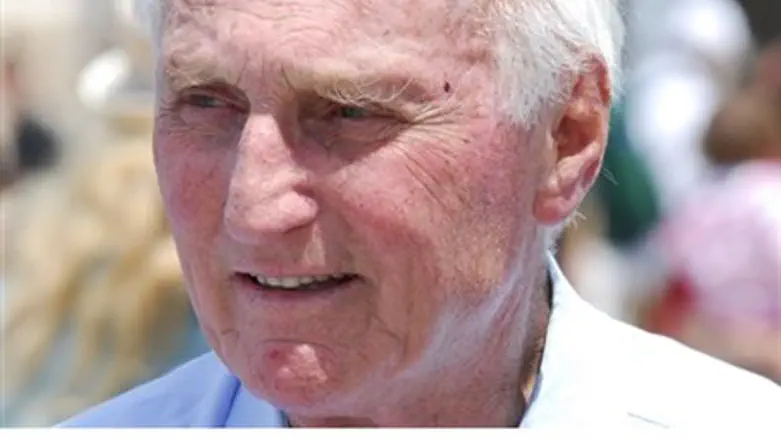
Major General (ret.) Shlomo 'Chich' Lahat, who served as Tel Aviv's mayor for 20 years, died Tuesday night in Tel Aviv's Icholov Hospital at age 87.
Lahat was born in Berlin in 1927 and made aliyah with his parents at age six. In 1941 he joined the Haganah. In the War of Independence he fought in the Givati brigade. In 1956, he was the first Israeli officer to be sent to the U.S. Army Command and General Staff College at Fort Leavenworth in Kansas.
In 1959 he was appointed head of the Operations Branch in the General Staff Operations Department. In 1962 he transferred to the Armored Corps, and in 1966 was appointed deputy commander of the Armor units. In the Six-Day War he was appointed governor of East Jerusalem, and at the end of the war was appointed head of the Central Command Staff with the rank of brigadier general.
In 1969 he was appointed commander of the Armored Forces in Sinai, and during the War of Attrition was commander of the operations along the Suez Canal until June 1970, being promoted to the rank of major general. In 1970 he was appointed chief of the army's Manpower Division. Lahat left active military service in March 1973 with the rank of major general.
In November 1973 Lahat was elected mayor of Tel Aviv at the head of the Likud list. He served as mayor for 20 years. According to the Jewish Virtual Library, as mayor “he was responsible for major administrative and operational changes in the city, investing heavily in communal, cultural, health, and education facilities, and rehabilitating the city's coast and beaches. It was with his active support that the Suzanne Dalal Center for Dance and Theater, the Tel Aviv Cinémateque, the new Opera House, and many other cultural enterprises were realized.
“While he was mayor the city absorbed 40,000 immigrants from the former Soviet Union, and the steady decline in the population of the city was reversed. The municipality adopted the Gesher theater, whose original cast was made up entirely of new immigrants from Russia. A special unit was established in the municipality for the conservation of buildings in the Bauhaus and International styles.”
After leaving city hall Lahat entered private business and served in various public functions including president of the Council for Peace and Security, chairman of the Yad Vashem Fund; chairman of the friends association of the Loḥamei ha-Getta'ot Museum; chairman of the Rabin Association; chairman of the board of directors of the Yiddish theater; and member of the Board of Governors of Tel Aviv University, the college in Jaffa, and other public institutions. He was chairman of the Diaspora Museum, Bet Hatefutsot.